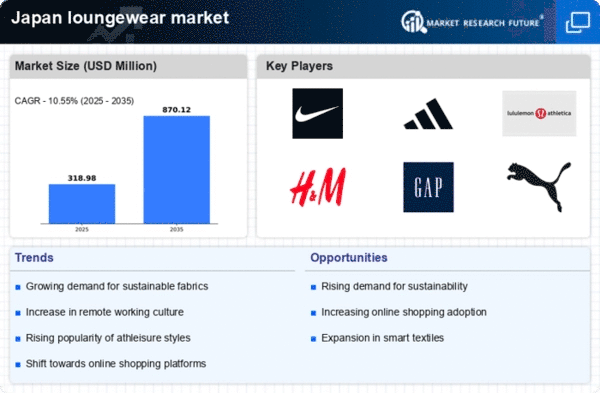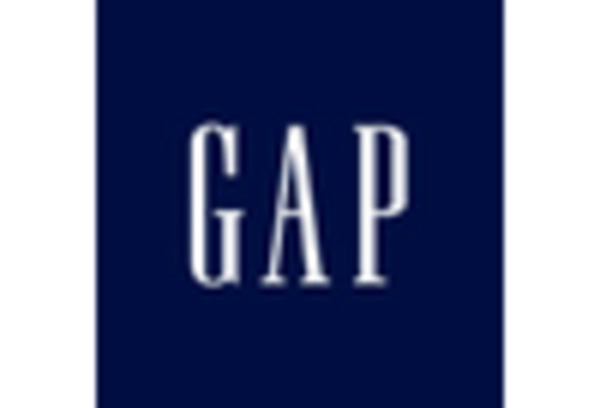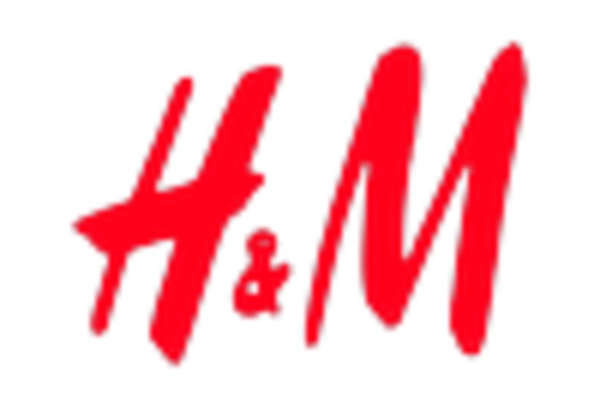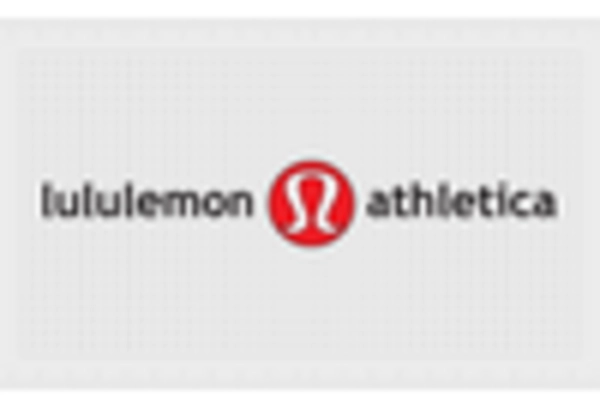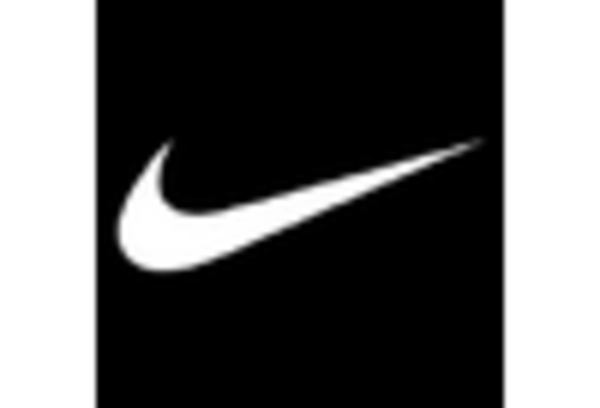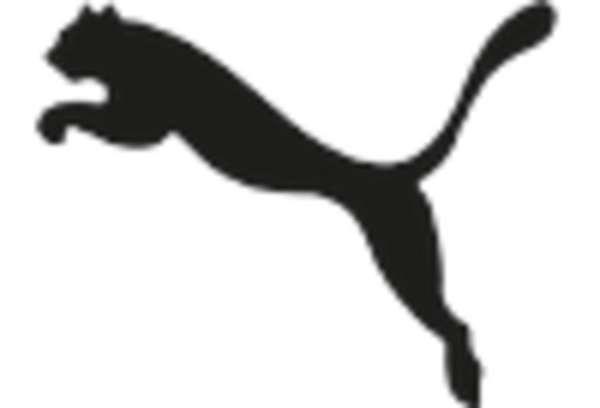Evolving Fashion Trends
The evolving fashion trends in Japan are playing a crucial role in shaping the loungewear market. As fashion becomes increasingly casual, loungewear is no longer confined to home use but is being embraced as everyday attire. This shift is evidenced by a 30% increase in loungewear sales in urban areas, where consumers are blending comfort with style. Designers are now creating collections that cater to this demand, incorporating contemporary designs and vibrant colors. The loungewear market is thus experiencing a transformation, as it adapts to the changing preferences of fashion-forward consumers who seek versatility in their wardrobes.
Rise of Remote Work Culture
The ongoing rise of remote work culture in Japan appears to be a pivotal driver for the loungewear market. As more individuals transition to flexible work arrangements, the demand for comfortable yet stylish loungewear has surged. Recent data indicates that approximately 60% of Japanese workers now engage in remote work at least part-time, leading to a notable shift in clothing preferences. Consumers increasingly seek garments that provide both comfort and a polished appearance for video calls. This trend suggests that the loungewear market is likely to continue expanding as remote work becomes more entrenched in the corporate landscape.
Influence of Celebrity Endorsements
The influence of celebrity endorsements is emerging as a significant driver for the loungewear market in Japan. As public figures increasingly showcase loungewear in their daily lives and on social media platforms, consumer interest in these products is rising. Recent surveys suggest that approximately 40% of consumers are more likely to purchase loungewear endorsed by celebrities they admire. This trend indicates that marketing strategies leveraging celebrity influence could effectively boost brand visibility and sales. Consequently, the loungewear market is poised for growth as brands capitalize on this phenomenon to attract a broader audience.
Increased Focus on Health and Wellness
The heightened focus on health and wellness among Japanese consumers is significantly influencing the loungewear market. As individuals prioritize comfort and well-being, there is a growing preference for loungewear that promotes relaxation and stress relief. This trend is reflected in the market, where sales of loungewear have increased by approximately 25% over the past year. Consumers are gravitating towards materials that are breathable and soft, enhancing their overall comfort. The loungewear market is thus positioned to benefit from this shift towards health-conscious consumer behavior, as more people seek clothing that aligns with their wellness goals.
Technological Advancements in Fabric Production
Technological advancements in fabric production are significantly impacting the loungewear market in Japan. Innovations such as moisture-wicking fabrics and temperature-regulating materials are becoming increasingly popular among consumers. These advancements not only enhance comfort but also improve the functionality of loungewear, making it suitable for various activities. Recent reports indicate that the market for high-performance loungewear is expected to grow by 15% annually, driven by these technological improvements. As consumers become more aware of the benefits of advanced fabrics, the loungewear market is likely to see a surge in demand for products that combine comfort with cutting-edge technology.


